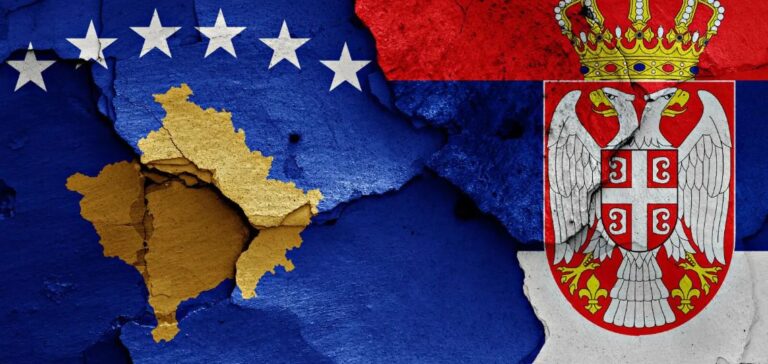An explosion on Friday evening near Zubin Potok, in northwestern Kosovo, severely damaged a section of the Ibar-Lepenac canal, essential for the country’s drinking water supply and energy production. This incident is deemed “the worst attack on infrastructure” since the end of the 1998–1999 war, according to the Kosovar government, which blames Serbia as the perpetrator. Meanwhile, Belgrade denies any involvement.
The canal plays a vital role in supplying water to thousands of households and two thermal power plants critical to Kosovo’s energy grid. Although the attack has not yet disrupted electricity production, it has significantly reduced water supply, providing only a quarter of the usual capacity on Saturday morning.
Investigation and Arrests
The Kosovar government, supported by local and international forces, has launched an extensive investigation, conducting raids at ten locations and arresting eight suspects. According to Kosovo’s Minister of the Interior, Xhelal Svecla, these acts amount to “organized terrorism” involving professional groups. Weapons, military uniforms, and various equipment were seized, further fueling suspicions of a meticulously planned operation.
Kosovar Prime Minister Albin Kurti visited the explosion site and stated that only organized groups with the capabilities and motivations could have carried out such an operation. He identified Serbia as the primary instigator, an accusation Belgrade calls “baseless.”
International Reactions
The incident has drawn strong condemnations from the European Union, the United States, France, and Turkey. Josep Borrell, the EU’s High Representative, described the attack as “terrorist” and called for an immediate de-escalation. France has demanded a thorough investigation, while Turkey has offered support to ease tensions.
NATO’s KFOR mission in Kosovo now monitors strategic installations, reinforcing security measures to prevent further attacks. The Kosovar government has also increased surveillance of critical infrastructure.
Serbia’s Position
Serbian President Aleksandar Vucic condemned what he called a “hybrid attack” aimed at discrediting Serbia and destabilizing the region. He emphasized that Belgrade is conducting its own investigation and urged calm. The Serbian List, the main political party representing Kosovo’s Serbian minority, also condemned the attack while calling for an impartial international investigation.
A Climate of Persistent Tensions
Relations between Kosovo and Serbia remain strained, with frequent spikes in violence, particularly in Serbian-majority areas of northern Kosovo. This incident comes just weeks before crucial legislative elections in Kosovo, raising fears of escalating tensions. Experts suggest the attack could further complicate fragile EU-mediated talks between Belgrade and Pristina.





















